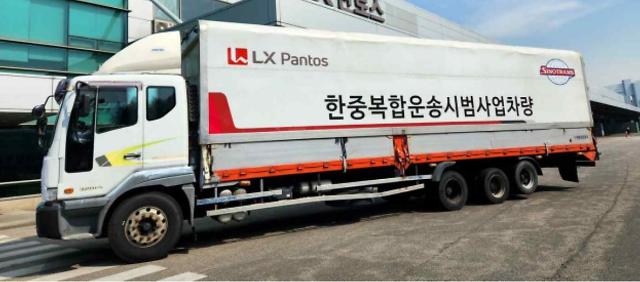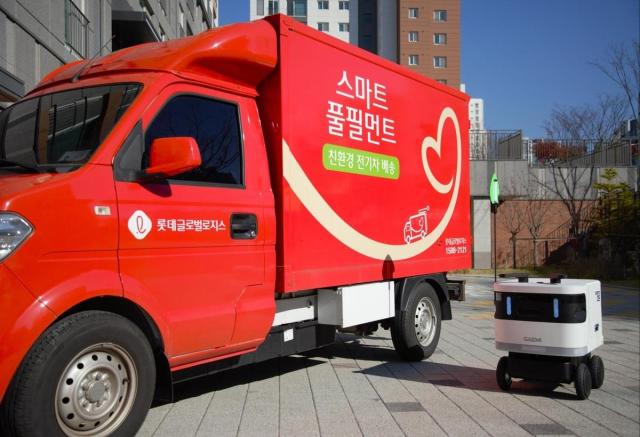
[Courtesy of the Ministry of Land, Infrastructure and Transport]
Normally, when a cargo truck carrying a trailer box arrives at an international port, the cargo is unloaded and moved to a storage yard before it is loaded back onto a ship to head to overseas countries. Such processes consume manpower and time. When a port or airport is overcrowded, shipping processes take way longer than previously analyzed, causing chaos.
Cargo congestion has become a huge problem in Chinese airports, especially airports in southern China, since 2021 due to skyrocketing popularity of Chinese goods purchased through ecommerce platforms. Purchased goods did not reach customers in overseas countries in time because cargo terminals also closed from time to time due to the COVID-19 pandemic.
According to the transport ministry, the China-South Korea multimodal logistics test service was kick-started on April 3 to carry cargo using trucks from Weihai Airport in the major port town in easternmost Shandong Province in China to Weihai Port. At the port, trucks are loaded onto a car ferry and moved to Incheon Port, one of South Korea's largest seaports. When trucks are unloaded, they will drive to Incheon International Airport to transfer their cargo to airplanes.
The transport ministry explained that the test multimodal transport service was designed to ease cargo congestion in Chinese airports and increase logistics sales of Incheon International Airport by handling transshipment cargo.
"Depending on flight schedules of cargo planes, cargo can be transferred onto airplanes on the day freight trucks from China arrive at Incheon International Airport. By doing so, we can reduce the time taken to send off ecommerce products and gain competitiveness in the global ecommerce logistics sector," a transport ministry said in a statement released on April 4.
The test multimodal service will be operated for six months and go through an evaluation process to check the service's efficacy and decide whether to continue the operation of the seamless logistics service.




